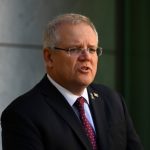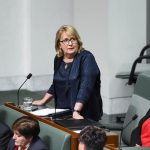The fracturing of our media and our community

In 1983, prominent sociologist Benedict Anderson published his book Imagined Communities. Anderson, an Irish political scientist and historian, was interested in exploring the origins of nationalism and understand the cultural and social ties that bind a nation.
Our imagined communities
Anderson’s argument is powerful: a nation as a ‘socially constructed community’ that is imagined by a group of people – the citizenry – who perceive themselves as part of an exclusive group. Why an imagined community?
Anderson states that a nation “is imagined because the members of even the smallest nation will never know most of their fellow-members, meet them, or even hear of them, yet in the minds of each lives the image of their communion”.
The source of this imagined communities was “print capitalism”. This was because capitalist entrepreneurs printed their media (newspapers and books) in the vernacular (not exclusive languages such as Latin) so they could maximize circulation.
Consequently, readers who spoke a variety of local dialects came to understand each other as a common language emerged.
There were three important consequences. The first was the emergence of a more cohesive nation. The circulation of such media gave birth the “…standardization of national calendars, clocks and language”.
This gave rise to “an imagined political community”. We imagine that by simply being citizens of the same nation, we have a shared sense of identity. We recognise each other as being uniquely similar no matter who our backgrounds.
It is from here that ‘nationalism’ emerges, as we imagine that we have exclusive identities that are unique and like no other nation. This sense of exclusivity can also lead to feelings of superiority and is celebrated through national days, sporting events and even conflict.
The third consequence that follows is that people of the same nation develop a national narrative. For example, what ties Australians together is our sense of ‘fair go’, our sense of humour, our love of the outdoors and weekends.
We are where we are as a nation because of our ‘hard work’. The narrative emerges around our history (a settler nation), our bravery (the ANZACs who sacrificed their lives) and even our politicians.
The fracturing of the media
While Anderson was writing about newspapers, other traditional media played the same role. In Australia, the three commercial stations and two government owned enterprises continued national conversations.
These conversations included holding governments to account no matter their political leanings. It was impossible to avoid news coverage of the corruption of the conservative Bjelke-Petersen government in Queensland uncovered by Fitzgerald Inquiry into police.
The scrutiny and public outrage saw a 19-year regime collapse and key figures spend time in jail. Likewise, the WA Inc scandals of the 1980s resulted in then ALP Premier Brian Burke spending time in jail.
These conversations led to agreement across the nation of the value of independent corruption watchdogs – our states and territories acted quickly, the Federal Parliament has been slow to catch up. In 2017, the Centre for Policy Development found for example, that more than three quarters of Australians support a federal corruption commission.
While there are many factors that have contributed to such sentiment, including a steady decline in the trust that most of us have towards politicians, without national coverage, such conversations would not have happened.
What we have seen over the last decade has been a fracturing of traditional media. Earlier this year, the Audited Media Association of Australia reported that in the second half of 2018, print media’s major mastheads saw circulation falls by around 10%.
The commercial nations continue to lose out to streaming and news consumption continues to be sourced from online providers – including social media. In the United States, we have seen the same trends emerge.
It is true that both Australians and Americans have become increasingly concerned about the quality of the news delivered through social media. The problem is, that once you begin to follow news through these forums, algorithms ensure what you read next reflects your political preferences. What follows is an echo chamber that reflects and reinforces your beliefs.
Does this matter?
While the decline of media outlets is itself not problematic, the issue is the fracturing of national news sources into echo chambers means that we are losing national conversations: both those that matter and those that have traditionally defined us and given us this sense of being a shared community.
The Trump Impeachment is a case in point: it has been the top story on the New York Times since the first meeting; acknowledged in passing by Fox News and not mentioned by alt-right website, Breitbart. While this has changed somewhat since the impeachment has gained momentum, what is obvious is that Americans are no longer having the same conversations.
A key example in Australia is around our history of multiculturalism. The Murdoch Press have lost faith in multiculturalism and is now failing, simply the result of a diversity fetish according to the Centre for Independent Studies and the world’s most successful multicultural nation.
While Benedict Anderson’s work has many limitations, key is his argument that a shared national narrative is fundamental in bringing us together.
While the fracturing of the media has removed the control of the news from the hands of a few moguls, they have been replaced by tech-giants and algorithms that means we are losing our ability to have shared conversation.
The consequence is that we are having conversations with only those we agree with. Under these conditions, is a socially cohesive community possible?
Professor James Arvanitakis is the Executive Director of the Australian American Fulbright Commission – one of the world’s most prestigious international education and cultural exchange programs.














